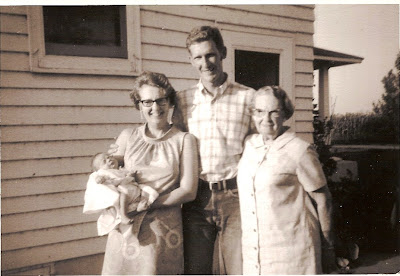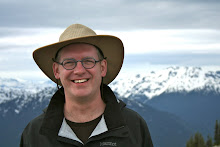We live in, “the land of the free and the home of the brave.” I’ve been thinking about that line a lot over
the past few days. Normally, I don’t
think much about it at all. I just start
clapping as the Star Spangled Banner ends at whatever public event I might be
attending. But in the aftermath of the
terrorist attacks in Paris, I’ve been thinking about the land of the free and
the home of the brave because to be honest, it doesn’t feel like that’s where I
am right now.
Terrorism is scary. I
flew on a plane out of Washington, D.C., the morning of September 11,
2001. I was back in a DC hotel next to
the White House a month later. I was
scared. We worried a lot back then about
the next attack. Everyone assumed it
would happen within weeks. People filled
the chatter on cable news with warnings about dirty bombs and small nuclear
devices. I always figured that if I was
outside in a place where there was a dirty bomb, I’d want to move into the
wind. For 14 years, I’ve made note of
the wind direction while traveling.
Watching what happened in Paris was scary. These were not attacks on landmarks or
government buildings or military targets.
These were attacks on neighborhood cafes and a concert venue. These were attacks on the normal actions of everyday
life. Most of us know what it is like to
sit in a neighborhood café and relax on a Friday night. Not only did the attackers hit settings where
we don’t expect violence, they hit a city where we don’t expect violence. It isn’t as shocking to see a terrorist
attack in Beirut because I’ve seen death and destruction in Beirut on my TV
screen before. But Paris is
different. Paris is the city of romance,
beauty and peace. It isn’t a place I
associate with violence.
So it is pretty easy to be scared by the events in
Paris. It’s pretty easy to think that if
it can happen in Paris, it can probably happen here, in my city, where I
live. When I let my brain go there, when
my thoughts are filled with ideas and images of terrorists attacking here in
Colorado, “I stop living in the home of the brave.” I worry about my family and friends. Those are scary thoughts.
But here’s the problem.
As Americans, we’ve built a culture that says we will rise above that
fear. Freedom requires bravery. We know
that is true. We sing about it in our
national anthem. Fortunately, we don’t
have to practice it on an individual level very often. Most of the time we can stand behind others who
volunteer to put on a uniform, serve their country and demonstrate bravery while
we stay comfortable in our homes and repeat the old cliché, “Freedom isn’t
free.” We are safe, we are secure and
there is very little burden to that safety and security. But Paris forces us to look at ourselves and
ask ourselves, “what am I willing to do today to demonstrate bravery in order
to preserve freedom?” I believe we must
ask ourselves that question because one of the goals of the terrorists is to
scare us and cause us to live in fear. The
terrorists know that freedom requires bravery.
The easiest way to destroy freedom is to force people to think that life
takes more bravery than they are willing to offer.
How do we demonstrate bravery in the wake of the attacks in
Paris? The first thing we have to do is
simply experience life together. We have
to turn off cable news. We have to turn
off social media and we have to go to a café or restaurant, or to a concert, or
to the movies. We need to get away from
the non-stop coverage and posts and comments and the negativity that comes with
it and reengage with our neighbors and our community.
The second thing we need to do is to live in some silence
for a little bit. Social media and cable
news offer us the grand illusion of unity.
They make us feel like we are united together by binding us with people
who think just like us, and then they work hard to reinforce those
similarities. But in reality, there are
few things more divisive than cable news and social media. By reinforcing similarities and painting even
the most trivial of differences as extreme and dangerous, cable news and social
media leave all of us with a distorted view of the world. Whether online or on TV, ratings and clicks
are driven by emotion and passion. As a
result, those creating online content and cable news shows look to constantly
push the boundaries of extreme ideas. Public
policy decisions become more about winners and losers than how to best move our
country forward. Compromise, the key to
any highly functioning democracy, becomes more difficult and in some cases
impossible. Thoughtful consideration of
issues falls to the side in favor of soundbites.
At a time when we are emotionally challenged by the events
in Paris, some time for quiet thought and reflection could serve us all
well.
The third thing I believe we need is to return to our
values. The problem with a conversation
about values is that decisions made in fear and actions taken in fear, don’t always
match up well with values. So the
question we face is this; Are we who we say we are? We have held ourselves out as a beacon of
freedom to the world. Will we continue
to be that beacon? If history is any guide, we don’t do well at holding to our
stated values when we are scared. The
internment camps we set up and sent Asian Americans to in World War II are just
one example of us losing site of that vision of who we want to be.
Now, millions of people in the Middle East are fleeing a
level of regular terrorism that most of us can’t imagine. They are searching for a place where they can
rebuild their lives and their careers doing such ordinary jobs as teachers,
doctors, plumbers, and farmers. We see
them coming and we are afraid. We are
afraid that some of those individuals that have been terrorizing these people
in their home countries in the Middle East may join them and pretend to be
refugees so that they can gain entry into the United States and do us
harm. It is a reasonable fear. But to deny aid and comfort to millions of
terrorized people because of that fear is to deny who we say we are as
Americans. (And if you are a Christian
like me, it certainly isn’t what our faith would have us do.) If we deny them aid and comfort and the
opportunity to rebuild shattered lives then we cannot claim to be the beacon of
freedom for the world. Because we are
not. We have let our fear overtake our
bravery and we have decided to live behind walls built of that fear.
What the terrorists know is that fear is an easy way to
destroy freedom. If they can get us to
forget our values and to instead focus on our fear, they don’t need to defeat
our armies. They will have caused us to
deny our faith and our values.
To be free, we must all be brave. Instead of simply relying on those who
volunteer to wear a uniform to be brave for us, we must all be brave. We can do so, while taking reasonable
precautions to do our best to ensure our safety. We do not need to be foolish. But if we are to be Ronald Reagan’s “shining
city upon a hill,” a beacon of freedom for all, we cannot close our doors, our
hearts and our minds to those that are fleeing terrorism. We can’t build a wall around our lives and
never venture out into the world. Because
that isn’t freedom. Freedom is best
defined by the people who, after 9/11 in this country and on last Saturday in
Paris, ventured out into the streets and went to the cafés, the theaters and
the concert halls. In spite of my fears,
I pledge to join them.



